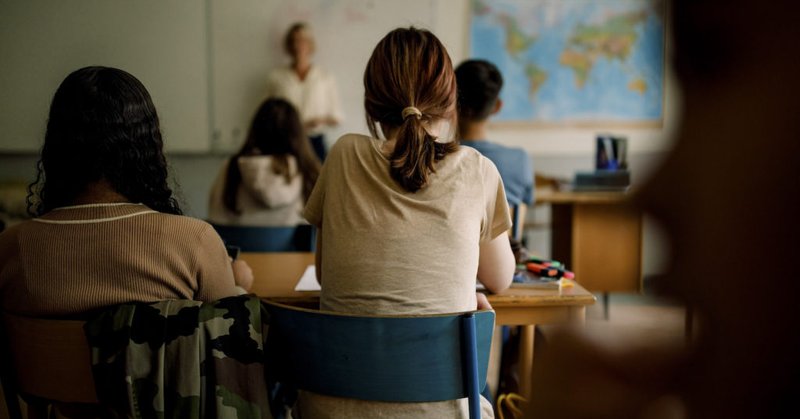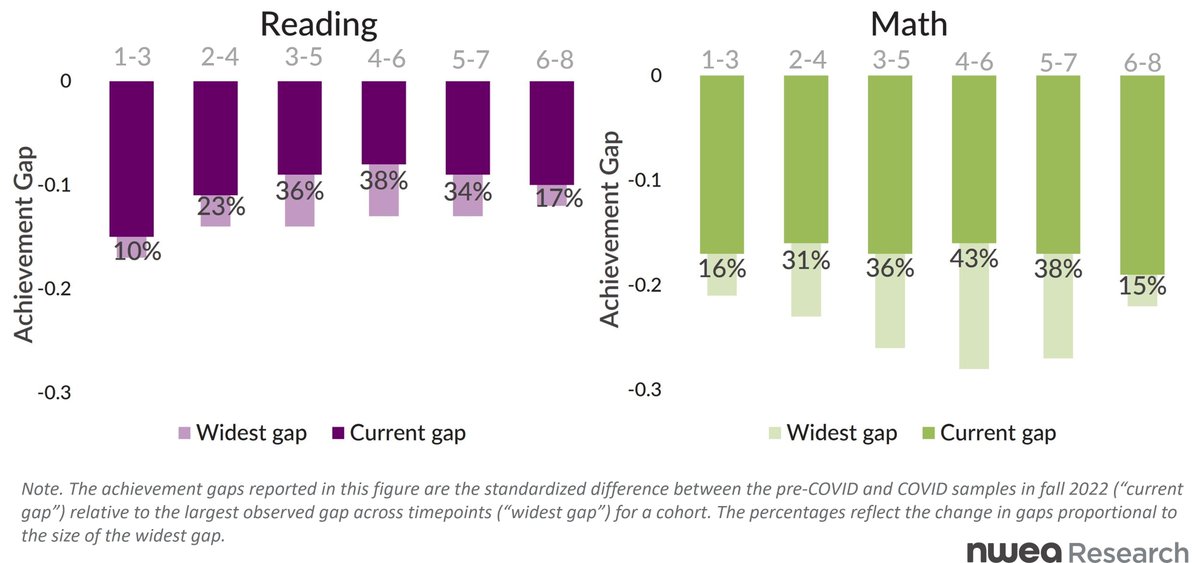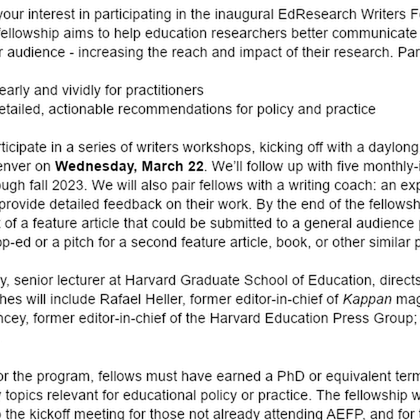
Karyn Lewis
@KarynLew
Followers
452
Following
3K
Media
18
Statuses
184
Director of Center for School and Student Progress @nwea and former Strategic Data Project Fellow at @HarvardCEPR. Views are my own.
Portland, OR
Joined July 2013
RT @readingby3rd: Coming up on 10/8 #LearningTuesdays will explore what's next in the ongoing quest for educational recovery w/ @NWEA @chie….
0
3
0
Excellent resource alert! Check out this brief on accelerating academic recovery from @ayeshashim and @emily_r_morton.
📣 NEW TODAY! The wonderful @ayeshashim & I updated the @Results4America & @AnnenbergInst #EdResearchforAction brief on #evidence-based strategies for accelerating student academic recovery. @NWEA @AIRInforms
1
0
7
RT @emily_r_morton: 🚨New @caldercenter WP finds positive impacts of summer school on math (but not reading). The math effects are worth cel….
0
4
0
RT @NewsHour: Billions of dollars were funneled to school districts across the U.S. to help them make up for learning loss from the pandemi….
pbs.org
Billions of dollars were funneled to school districts across the U.S. to help them make up for learning loss from the pandemic. But new research shows that even with that extra money, school distri...
0
27
0
New @nwea research out today from @megankuhfeld and me with concerning findings on the state of pandemic recovery.
2
10
12
🚨We're hiring (paid!) summer interns to (remotely!) join the @NWEA research team and work on really cool measurement and education policy research projects.
jobvite.com
Learn about what Jobvite software is, and check out the most frequently asked questions by job seekers using Jobvite. Need help with your password or with your video interview? We have the resources...
2
68
105
New @nwea research out from me and @MeganKuhfeld looking at fall 2022 data shows continued progress towards academic recovery. The gap between current and pre-pandemic test scores continues to shrink across grades and subjects. 1/n
1
5
17
RT @clconaway: Education researchers: Want to learn how to write clearly & vividly and make detailed, actionable recommendations for policy….
docs.google.com
EdResearch Writers Fellowship Application 2023 Thank you for your interest in participating in the inaugural EdResearch Writers Fellowship program. This fellowship aims to help education researchers...
0
79
0











